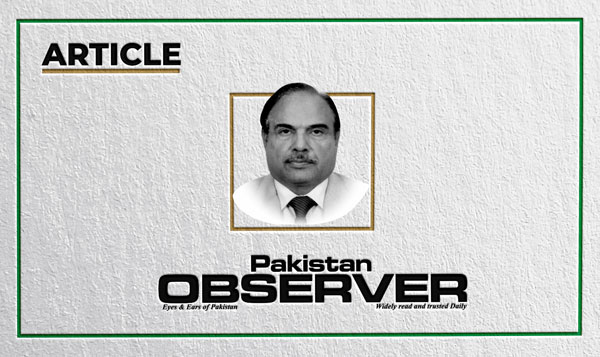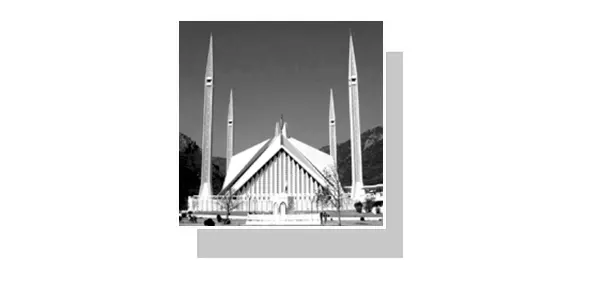President has no constitutional powers to act against Army Officers
IN a letter to the President of Pakistan, former Prime Minister Imran Khan referred to the press conference held by the Director General of ISI and Director General ISPR on 27th October and accused them of deliberately trying to create a false narrative.
Imran Khan appealed to the President that under Article 243.2 of the Constitution he should take note of serious wrongdoings and to institute an inquiry under his leadership to identify the guilty and hold them accountable.
He urged the President to act now to stop the abuse of power and violations of our laws and of the Constitution.
Imran Khan referred the Article 243.2 which is not applicable in the present scenario as per Article 243.2 without prejudice to the generality of the foregoing provision; the Supreme Command of Armed Forces shall vest in the President.
In the light of this Article the President of Pakistan has no power at all to remove or suggest any army officer, so no such power rests with the President.
President under the Constitution has been seized to exercise such powers in view of the Army’s own Act and Law.
The legal team of Imran Khan should have looked into it in the present scenario before sending a letter to the President.
During an interview with an American news channel, Imran Khan claimed he had obtained advance warning from within the intelligence agencies about an assassination attempt against him.
He added that the information was given to him because most people are appalled by what is going on in this country, implying it was malcontents within the intelligence that had warned him about the plot.
There are two aspects to this very significant statement broadcast to an international audience.
Firstly, if Imran Khan had prior information of such a plot, then by embarking on the long march regardless and, especially, without taking necessary common sense precautions, he placed himself and all those present at grave risk of harm.
That was irresponsible in the extreme. Secondly, Imran Khan has in effect let slip that there is a mole inside the intelligence apparatus circumventing the command structure to reveal his organisation’s operational details to someone outside the system, which the former PM Imran Khan, obviously is.
Of course, that is not to say there is indeed a leak, perhaps when he uttered these words, the ousted Prime Minister was carried away by emotion on account of his brush with death.
Nevertheless, his contention must be investigated. Even if there’s any truth to it, his bringing into the public domain such a rupture within the intelligence apparatus is a grave mishap and may even attract the provisions of the Official Secrets Act, the culpable officers would certainly be liable to prosecution.
Imran Khan appealed to the President of Pakistan for action that seemed to have been triggered by an unprecedented media briefing by the ISI and ISPR chiefs where Imran Khan was censured for his false foreign conspiracy narrative.
The standoff between the PTI and Security Establishment also worsened after the alleged custodial torture of Senator Swati.
It may be outside the President’s constitutional powers to act against a serving army officer as demanded by Imran Khan but the letter sent to him by Imran Khan highlights the widening fault lines in the country’s power structure.
The events of the past ten days demonstrate the unraveling of the edifice. An increasingly divided state has worsened the power vacuum.
There is complete breakdown of authority. Chances of a civil strife loom large with the impending collapse of state institutions.
The ongoing political confrontation and polarisation threaten to derail the democratic process.
Imran Khan’s confrontation with the Establishment cannot be taken as a battle for civilian democracy.
It’s a ruthless struggle for power. The country is hurtling towards a state of anarchy with no resolution of the crisis in sight.
On the other hand, after repeatedly calling for a consultative process before picking the new army chief, Imran Khan now does not see any problem if the appointment is made by the present Premier Shahbaz Sharif.
In an interaction with journalists at his Lahore residence, he offered a fresh take on the issue of appointing the new chief of army staff.
He also revealed that his relations with the military establishment became strained on the issues of accountability, adding that the Premier should be empowered if the country is to run smoothly.
Calling the tense law and order situation following the gun attack on Imran Khan is a serious threat to the solidarity of the country, Prime Minister Shahbaz Sharif asked Chief Justice of Pakistan Umar Ata Bandial to form a Judicial Commission comprising all available judges to unearth the facts behind the assassination bid on the former Premier Imran Khan.
It is my considered opinion the honourable Chief Justice of Pakistan will decide to form the full Court Commission in consultation with all judges, in the present state of anarchy it seems difficult to form a Judicial Commission.
—The writer is former Secretary Election Commission of Pakistan and currently Chairman National Democratic Foundation.











